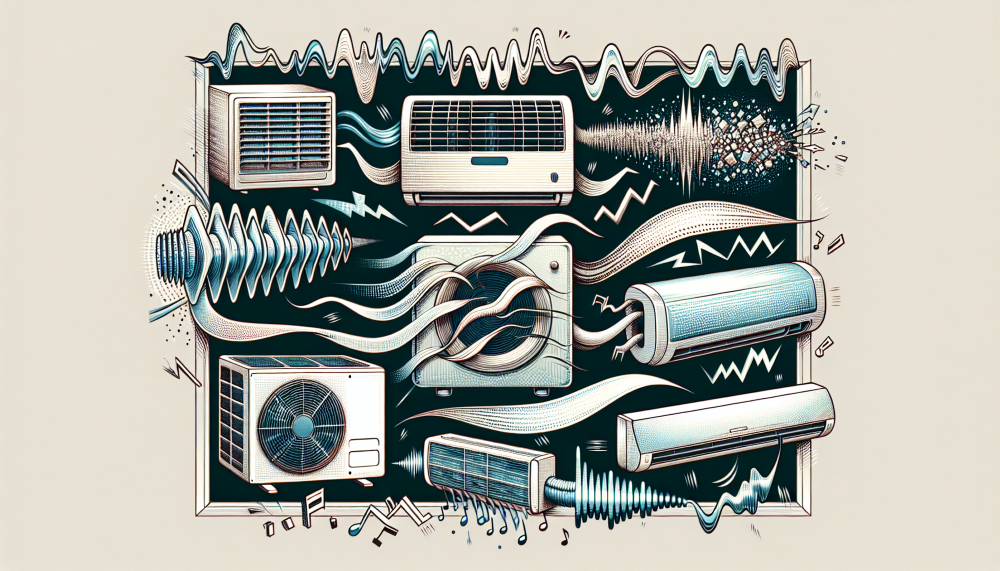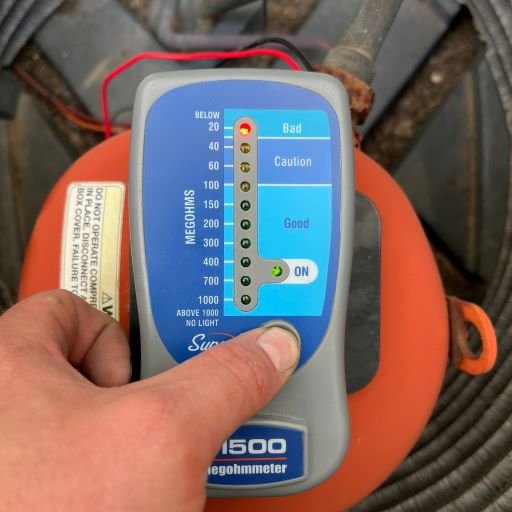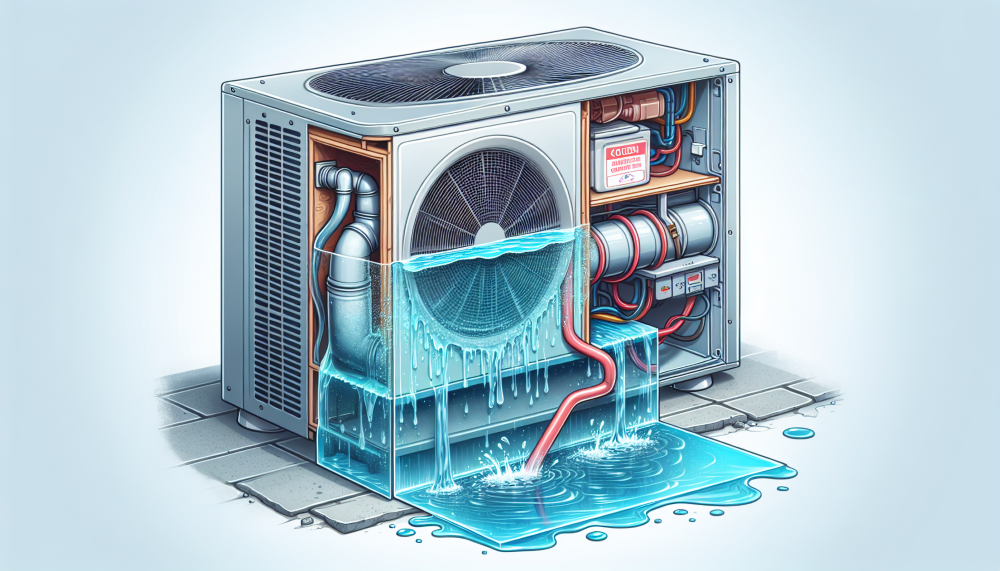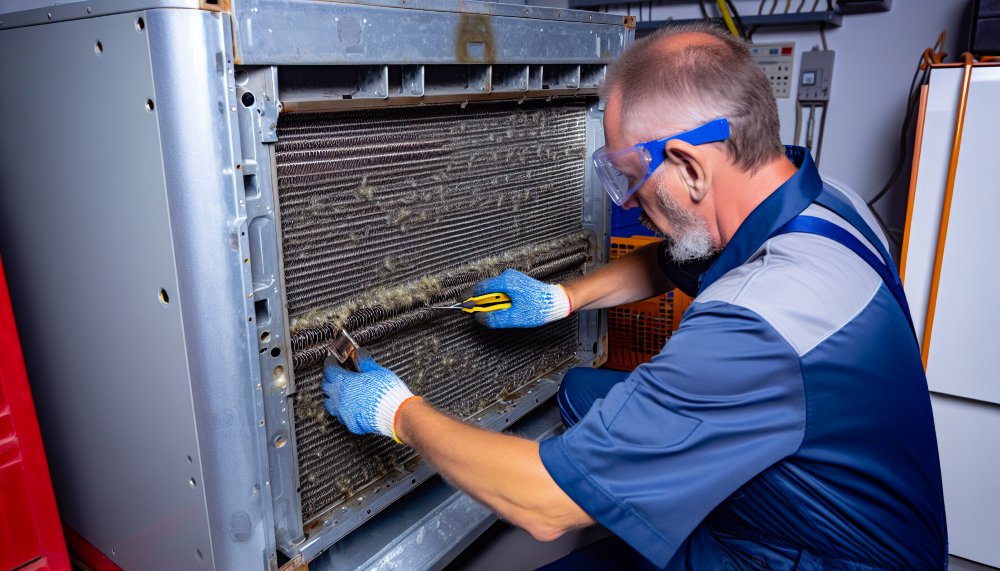My AC is Too Noisy
Struggling with a noisy air conditioner? ‘My AC is too noisy’ – a common frustration that often points to issues needing attention. This article offers a straightforward approach to diagnosing and resolving the disturbing noises from your AC. We’ll cover common sounds like banging, humming, and buzzing, and provide actionable steps to mute the disturbance. Keep reading to identify your issue and find a solution to regain your quiet space.
Key Takeaways
Different noises from an AC unit, such as banging, humming, and buzzing, indicate various issues that range from loose parts to electrical problems, which require correct diagnosis and may need professional repairs.
Routine troubleshooting and maintenance, including tightening screws, cleaning or replacing air filters, and debris removal, can mitigate common AC noises and enhance the unit’s efficiency and longevity.
Severe AC noises, persistent issues, or signs of aging and inefficiency in an air conditioner may necessitate professional intervention, and in some cases, replacement of the unit for better performance and quieter operation.
Decoding the Ding: Types of Noises from Your Air Conditioner
Air conditioners are complex machines, and they can produce a variety of air conditioner sounds, each indicating different issues. Some noises are innocuous - the simple byproduct of a machine hard at work. Others, however, may signal a problem that needs your attention. It’s like the ‘Check Engine’ light in your car; not all noises are alarming, but some should not be ignored.
Some common noises you might hear from your AC unit include:
Banging sounds, which could indicate loose or out-of-balance parts within the blower assembly or motor
Humming noises, which might signal underlying electrical issues or problems with the fan motor
Buzzing noises, which typically imply motor wear or moisture buildup
These are just a few examples; understanding the specific sounds can help you diagnose and address potential issues, ensuring that your air conditioner operates at peak performance.
Identifying a Banging Noise
A banging noise from your air conditioner can be quite concerning, especially if it’s loud and persistent. It’s often a telltale sign of loose internal parts, such as in the blower or motor. Over time, these parts can become dislodged due to vibration or wear and tear, resulting in the banging noise you hear.
When the banging noise is coming from the compressor, it could indicate a more severe problem. Loose or broken parts, or general wear and tear, can make your compressor sound like a rock concert in progress. Ignoring these sounds could lead to more significant issues down the line. Therefore, if a persistent banging noise is present, consider calling a professional to inspect your unit.
Humming Sounds Explained
A humming noise from your air conditioner could indicate potential issues such as:
Underlying electrical problems
Issues with the fan motor
Failing starting capacitor
Motor in need of repair
Identifying and addressing these potential problems is important to ensure the proper functioning of your air conditioner.
Although occasional humming is a normal aspect of an air conditioner’s operation, you shouldn’t overlook persistent or loud humming noises. These could indicate more serious issues related to air conditioner noise that require professional inspection to prevent further damage or a potential breakdown.
Buzzing Sound Investigation
A buzzing noise from your air conditioner is another common issue that homeowners may encounter. The noise could be caused by a few different problems, including:
Loose or unbalanced fan blades
A faulty outdoor fan motor
Loose components
Identifying the exact cause is crucial for addressing the problem effectively. Each of these issues can reduce the efficiency of your air conditioning unit and lead to higher energy bills.
Faulty compressors are a significant source of buzzing sounds, often indicated by shaking during startup or cooldown. Electrical issues, including loose wires or malfunctioning circuit boards, can also produce a buzzing sound, reducing efficiency and possibly creating a fire hazard. A persistent buzzing sound from your air conditioner warrants professional help to diagnose and rectify the issue before it escalates.
Troubleshooting Tips for a Quieter Air Conditioning Experience
After deciphering the language of your air conditioner, you might be wondering how to mute the cacophony. Here are some common troubleshooting tips to quieten your noisy air conditioner. While some noises require professional intervention, others can be fixed with a few simple DIY steps.
The accumulation of excessive dust and debris in AC units can result in various noises. These noises can serve as indicators of potential issues. These noises are often caused by obstructions that affect airflow, causing your air conditioner to work harder and generate more noise. Regular cleaning and maintenance can help to prevent this. Rattling noises, for instance, can often be resolved by removing sticks or small rocks from the unit.
Tightening Loose Screws
Loose screws in an AC unit can lead to parts such as the condenser rattling or shaking, which creates a loud humming noise. These screws can come loose due to the constant vibration of the air conditioning unit during operation. Tightening them is a simple task that can significantly reduce the noise from your unit.
To reduce noise, start by locating the loose screws through visual inspection and manual testing in both indoor and outdoor AC units. However, when tightening them, avoid excessive force as it can strip threads or damage components, which might cause even more noise.
Cleaning and Replacing Air Filters
Air filters play a vital role in an air conditioner’s operation. They trap dust and debris and prevent these from entering your AC system. However, over time, these filters can become clogged, restricting airflow and forcing the AC system to work harder. This increased strain often results in louder operational noise.
Hence, to prevent excessive noise and ensure quiet operation, it is essential to clean or replace the air filters in your AC unit regularly. It is recommended to check your AC’s air filters at least once a month and clean or replace them as needed, especially during high usage periods.
Debris Removal from Fan Blades and Condenser Coils
Accumulation of debris such as leaves, twigs, or dust is common on fan blades and condenser coils. This can interfere with the fan’s rotation and the efficiency of the condenser coils. This not only affects the performance of your AC unit but also results in increased noise.
Before attempting to clean these parts, always turn off the power to the unit to ensure safety. Here are the steps to follow:
Inspect the fan blades for any debris or bent edges.
Remove any debris gently with a brush.
If necessary, use a fin comb to straighten any bent fins on the condenser unit.
Regular professional cleaning can also prevent rattling noise caused by excessive debris, helping to avoid damage and extending the unit’s lifespan.
When to Seek Professional Help with Your Noisy AC Unit
While you can fix some AC noises with straightforward troubleshooting, others may hint at severe problems, necessitating a professional’s intervention. Persistent or loud noises could indicate severe problems that need immediate attention. For instance, a screaming or high-pitched squealing noise often indicates a refrigerant leak or high internal pressure in the compressor and requires immediate professional attention.
Grinding noises could signal severe issues such as worn-out compressor pistons or broken condenser fan blades, necessitating professional repairs. Persistent humming or buzzing noises, especially when the AC is first turned on or during temperature changes, could indicate wiring problems or other issues requiring professional inspection. In such cases, it’s best to seek help from a certified technician to ensure your AC unit is properly diagnosed and repaired to avoid further damage or potential breakdown.
Enhancing Comfort: Soundproofing Against AC Noise
Apart from addressing the noise’s source, you can also soundproof your home against AC noise using a sound blanket. This can make a significant difference in the overall quietness of your living environment, enhancing comfort and peace of mind. Soundproofing involves two main principles: blocking the sound from entering your living space and absorbing the sound that does get through.
Creating a soundproof enclosure or fence around the AC unit with both sound-absorbing and sound-blocking materials can substantially reduce noise. You can also use materials like mass-loaded vinyl, fiberglass composites, and foam composites on the walls surrounding an AC unit to contain and reduce sounds. Even placing a few strategically located plants can act as a natural noise barrier and contribute to AC noise reduction.
Lastly, installing an air conditioner away from doors and windows can reduce the amount of noise entering the home.
The Impact of Regular AC Maintenance on Noise Reduction
Maintenance of your AC unit doesn’t only ensure efficient cooling but also plays a pivotal role in noise reduction. By ensuring components like the fan and compressor operate smoothly, you can prevent excessive noise and keep your air conditioner running quietly and efficiently.
Cleaning outdoor units regularly and identifying issues before they escalate can help prevent noise due to airflow reduction or system strain. Clearing blockages in the condensate drain as part of regular maintenance aids in preventing operational noise.
Overall, regular maintenance not only prolongs the lifespan of your AC unit but also contributes to a quieter and more comfortable home.
Importance of Annual Check-Ups
Annual maintenance of your air conditioning unit is key in preventing most performance issues and avoiding potential breakdowns. These check-ups involve a thorough inspection of your AC unit, identifying and addressing any potential issues before they escalate into severe problems.
By enabling the air conditioner to function correctly, regular maintenance contributes to reducing the likelihood of a noisy AC unit. Not only does this lead to quieter operation, but it can also result in lower utility bills, due to the proper and efficient operation of the air conditioning unit.
Benefits of Professional Cleaning
Although you can perform some basic maintenance tasks, having your AC unit professionally cleaned offers several benefits. For one, professional cleaning of the AC system can enhance energy efficiency, which is often linked with a reduction in operational noise.
An AC unit that is cleaned professionally offers several benefits:
Operates with less effort, leading to diminished energy expenditure
Quieter performance
Lower energy bills
Extended lifespan of the AC system
Decreased occurrence of noises commonly associated with worn-out parts.
Upgrading Parts for Optimal Performance
Some components of your AC unit may wear out or become obsolete over time. Upgrading these parts like fan motors or compressors can enhance your AC unit’s performance and diminish the noise levels.
Newer air conditioner parts are designed with efficiencies that reduce noise, making them a suitable option for those looking to mitigate noise issues in their AC systems. For instance, utilizing a variable-speed motor can optimize fan speeds depending on the cooling demand, offering not only quieter operation but also energy savings.
Evaluating the Need for a New Air Conditioner
Sometimes, despite all your efforts to silence your noisy air conditioner, the noise persists. Should your air conditioner be old, inefficient, or consistently noisy, replacing it might be the right move.
Here are some signs that your air conditioner may need to be replaced:
It is approximately ten years old
It is not cooling your home effectively
It requires frequent repairs
It is causing a significant increase in your energy bills
Replacing your air conditioner can improve efficiency and reduce energy costs.
An increase in energy usage without changes in electricity consumption habits can indicate that an air conditioner is losing efficiency and might require replacement. Persistent unpleasant odors, overheating issues, or persistent noise are also red flags indicating it might be time for a new unit. New air conditioning models are typically quieter due to improved soundproofing technologies, providing an advantage when considering replacement.
Implementing DIY Fixes for a Silent AC
For those who prefer a hands-on approach, several DIY fixes can help reduce the noise from your air conditioner. These include securing loose panels, adjusting thermostat settings, and insulating copper lines. While these fixes might seem small, they can have a significant impact on reducing the noise from your AC unit.
Some tips for reducing noise from your air conditioner include:
Securing loose panels to prevent rattling sounds
Adjusting the thermostat settings to avoid excessive noise
Insulating copper lines to mitigate buzzing sounds and enhance system quietness.
Securing Loose Panels
Loose panels on your air conditioner, which often occur due to the unit’s constant vibration during operation, can be a major source of noise. So, a simple fix is to inspect and tighten any loose panels on your unit to eliminate rattling noises.
A Phillips tip screwdriver or a 1/4” nutdriver or socket is typically required to tighten the fasteners on a loose AC panel. Ensure that all access panels on the AC unit are properly tightened during the securing process. Properly securing all screws is essential to prevent future rattling noises from loose panels.
Adjusting the Thermostat Settings
The noise produced by your air conditioner can also be influenced by the thermostat settings. Using the ‘on’ setting on a thermostat keeps the fan running continuously, which may contribute to increased noise levels. Setting the thermostat to ‘auto’ mode can cut down on AC noise by operating the fan only during the cooling or heating cycles.
The ‘auto’ setting reduces the frequency of fan operation compared to the ‘on’ setting, leading to quieter air conditioner performance. So, if you’re looking to reduce your air conditioner’s noise output, consider shifting the fan settings on your thermostat from ‘on’ to ‘auto’.
Insulating Copper Lines
The copper lines in your air conditioner could add to the noise, especially if they vibrate against other parts of the air conditioner or the surrounding framework. Insulating these lines can mitigate these noises and enhance overall system quietness.
To insulate your AC’s copper lines, you’ll need:
Foam insulation such as polyethylene foam
Foil tape or electrical tape
A utility knife
Scissors
When insulating, ensure to use the correct thickness of insulation, which can vary between 1/2 inch, 3/4 inch, and 1 inch, based on the diameter of the copper pipe.
Properly insulating copper lines involves the following steps:
Clean the pipe
Remove old insulation
Measure and cut the new insulation to size
Wrap the insulation around the pipe
Seal the edges with tape to protect from sun damage and ensure longevity.
Summary
In conclusion, there are various ways to solve the riddle of a noisy air conditioner. From understanding the types of noises and their potential causes to implementing troubleshooting tips, regular maintenance, and DIY fixes. However, if the noise persists, it may be time to seek professional help or consider replacing your unit. Remember, a quieter air conditioner is not only more comfortable but can also be more efficient, saving you money on energy bills in the long run.
Frequently Asked Questions
How loud is too loud for AC?
Aim for your air conditioner sound level to be between 40-60 decibels at most, with a quiet air conditioner having a sound level below 40 decibels. This is the ideal range for minimizing noise discomfort.
What are the symptoms of a bad AC compressor?
If you hear ticking or chattering noise, rattling or rumbling noise, notice less airflow, warmer air, leaking refrigerant, tripping circuit breaker, or vibrating unit, your AC compressor may be failing. Date: 2023
How can I make my air conditioner less loud?
To make your air conditioner less loud, clean and tighten the blower fan, lubricate the fan motor, tighten loose screws, and quiet the loud compressor. This can help reduce the noise coming from your A/C unit.
What could be the cause of a banging noise from my air conditioner?
A banging noise from your air conditioner could be caused by loose internal parts such as the blower or motor, or it could indicate a faulty compressor. It's important to have a professional inspect and repair the issue.
When should I seek professional help for my noisy AC unit?
You should seek professional help if you hear persistent or loud noises, such as screaming, high-pitched whistling, or grinding noise. It's important to address these issues as soon as possible to prevent further damage to your AC unit.







